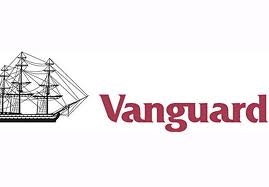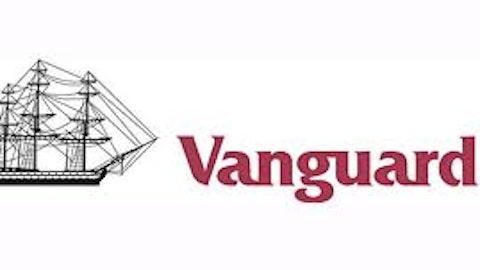
Background: On October 2, 2012, Vanguard announced a huge change. Over a period of six months, twenty-two Vanguard index funds will change the benchmarks used to measure their performance. Six international stock funds will transition from familiar MSCI indexes to established, yet less popular FTSE benchmarks. Additionally, sixteen U.S. stock funds will move to newly developed benchmarks from the University of Chicago’s Center for Research in Security Prices (“CRSP”). These changes will apply to all the funds’ share classes, including exchange-traded funds (ETFs). See Vanguard Announcement of October 2, 2012 with list of affected funds.
The changes will take place gradually during the first six months of 2013, although Vanguard does not intend to reveal the schedules for individual funds. An added twist for the Vanguard MSCI Emerging Markets (NYSEARCA:VWO) is it will be tracking a specially developed transition index during that time. Additional information on this process is available in FTSE Transition overview (pdf).
Vanguard’s ETFs are structured as an additional share class to their mutual funds. The affected funds are typically available in three share classes: Investor, Admiral, and ETF. Therefore, up to 66 fund tickers may be affected by these changes. According to Vanguard, assets in these funds total about $537 billion. This is not a trivial change.
What does this mean to you?
The primary implication for investors is to understand that when you choose an ETF, you are also choosing an ETF sponsor/manager and choosing an index. This has always been true to some extent. However, with multiple ETF providers basing their offerings on the same indexes, the choice was previously just a matter of choosing the ETF provider.
When building portfolios based on multiple index providers, investors need to be cognizant of overlap and underlap. The most talked about example of this appears in the international indexes and the classification of South Korea. In the MSCI methodology,South Koreais an “emerging market” while in the FTSE methodology it has “developed market” status.
You can argue about which one is correct or better, but that misses the point. When Vanguard and iShares were both following MSCI benchmarks, you could easily choose one vendor for your emerging markets exposure and the other for developed markets exposure. Since they had the same benchmark, you did not have to worry about overlap or underlap.
If you try to mix the two once Vanguard’s changes are complete, you will end up with either a double weighting in South Korea or a zero weighting in South Korea. The same is true when choosing Large Cap Value and Large Cap Growth funds. If they are not tracking benchmarks from the same index provider, then there is likely to be overlap and underlap of individual stocks.
Should you be concerned?
Strategic asset allocators, institutional investors, and ETF strategists should be concerned. For these groups, the possibility of overlap/underlap is very real and needs to be understood. Switching models from MSCI to FTSE or CRSP will require thoughtful analysis and clear divisions.
Technical and tactical traders should be cognizant of the major differences, but they probably do not need to be overly concerned. In fact, the differences could be helpful if different performance characteristics develop. These groups could buy an MSCI based ETF this month and use a FTSE based ETF on the next trade.
For day traders, liquidity and asset class representation are among the most important factors. These index changes are not likely to be a concern unless the trading vehicles experience a drop in liquidity.
Should you fire Vanguard as your fund vendor?
Like many difficult questions, the answer to this one falls into the “it depends” category. If you trade or invest in Vanguard’s sector ETFs, then these changes will not affect you. For “style-box” funds, Vanguard provides lineups from three separate index providers: Russell, S&P, and MSCI (see Vanguard Declares War in Fight for Broad Market ETF Supremacy and Vanguard Launches Second Assault On iShares). The MSCI series is transitioning to CRSP indexes, but there are no changes planned for the Russell and S&P varieties.
If you prefer to stick with the MSCI classification methodology with your international equity exposure, then you will need to fire Vanguard, at least for some of your holdings. In this regard, my iShares Introduces Core ETF Lineup article identifies some of the advantages of the Investable Market Indexes from MSCI. Be sure to factor in the potential tax consequences of your actions before making your final decision on firing Vanguard.
Vanguard’s announcement of these index changes stressed the potential cost savings as a primary reason for the change. Personally, I don’t think investors should make major decisions based on small differences in expense ratios. At expense ratio differences of less than 0.1%, other factors become more important. Vanguard has been very successful in the past when competing on price, but they are now moving the battlefield to other, less quantifiable, factors. Time will tell whether or not that prior success moves also.
This article was originally written by Ron Rowland, and posted on InvestWithAnEdge.



